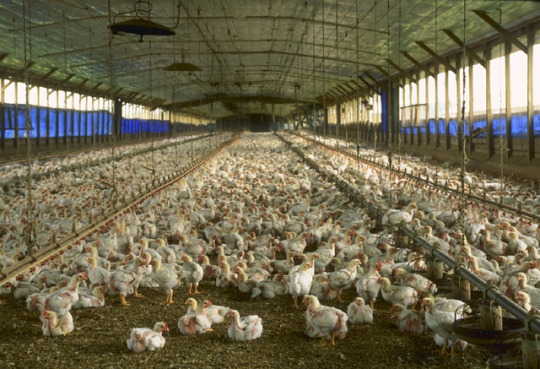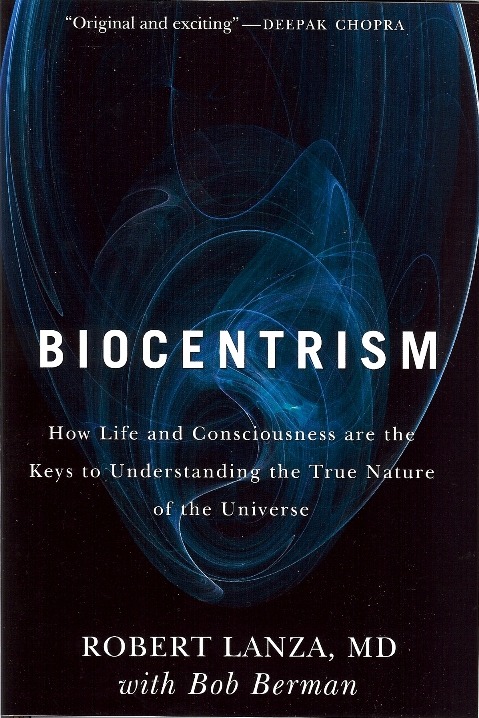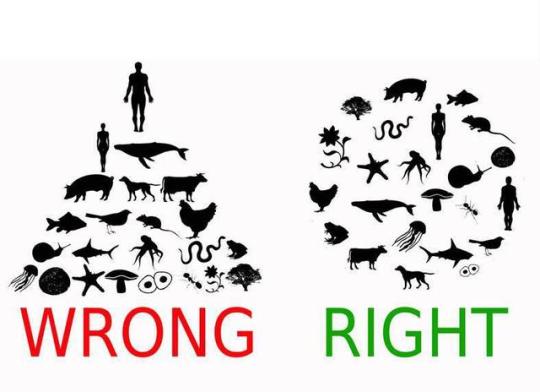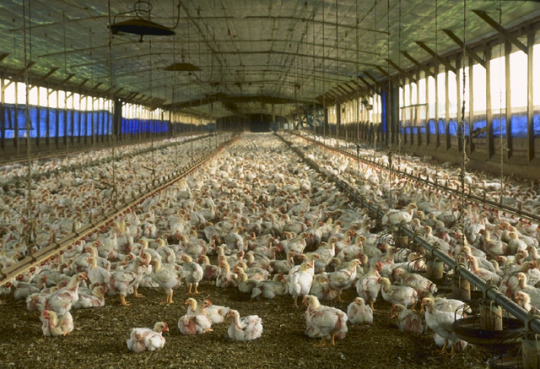You can drive out nature with a pitchfork but she keeps on coming back. Horace (65-8 BC)
Don't wanna be here? Send us removal request.
Photo



“There is pleasure in the pathless woods, there is rapture in the lonely shore, there is society where none intrudes, by the deep sea, and music in its roar; I love not Man the less, but Nature more.”
- Lord Byron
0 notes
Text
Final Blog - My position as an Environmental Stakeholder and Citizen
What I took out of this class was more than a simple mass of information that is probably going to be irrelevant sometime soon in the future. I enjoyed learning on this topic because environmental issues are issues that surround each and every one of us, and this can be a great common cause for people to get together to accomplish something great. That is an aspect I haven’t thought of nature before. The last topic, ecothology was my favorite for that reason. Practically every religion trusts that we have an obligation to regard nature, and numerous nonreligious theories trust a similar thing. Religion can act as an adjoining force to unite under nature, so I believe the same can be done the other way around.
I can’t forget about the documentary Earthlings. That was truly an eye opening experience for me as I haven’t seen any of those methods in person. I have seen and heard of videos going around the internet, but I always refrained myself from looking. I am glad at this point that I saw the documentary, and saw how brutal and ruthless some of the methods used when preparing our food at our tables. I have grown up as an individual after seeing the documentary I believe. I eat meat in a minimal level now, and when I do, it still doesn’t fit right with me. I have been wanting to become a vegetarian for a few years now, and watching the documentary pushed me towards my goal undoubtedly.
I feel nearest to the earth wisdom. I for one like this one since it regards the nature in itself not at all like alternate methodologies. Earth astuteness trusts that we are a piece of nature, both body and soul. This by nature makes a deep association with between the individual and the earth since you trust that you are of a similar embodiment. You are unified with the earth all things considered; this will influence the way you pick your ethical approaches towards nature. Earth insight feels that nature has moral standing. The assets are obviously to be utilized, yet should be regarded as having an incentive in itself also. If we can make a profound association with the world like the antiquated Greeks did, we can live reasonably and sustainibly.
0 notes
Text
Blog #10 Egalitarian Animal Rights
Singer trusts that people and nonhuman creatures have consciousness, which is the capacity to experience joy and torment, to detect outer jolts and have an enthusiastic reaction. Nonhuman creatures have the ability to impart joy and agony in routes like people by communicating these feelings in comparable substantial developments that people use to express these emotions. He is agreeable to expanded joy and diminished agony for all creatures. He bolsters the utilitarian standard of the best satisfaction of the best number of conscious creatures. He bolsters square with good remaining of people and non-human creatures. He also expresses that people and non-human creatures should have approach rights to life, freedom, property, society, food, and quest for joy. You can’t execute, and you should indicate level with good regard to others. In conclusion, he underpins the nullification of experimentation on creatures, the annulment of industrial facility cultivating, the abrogation of the utilization of meat, the cancelation of executing wild creatures, the abrogation of game chasing, and the cancelation of creature use in excitement.
Singer is an Australian good scholar, who is an educator of Bioethics at Princeton University. He supports an utilitarian perspective, and backings vegetarianism. The primary issues examined in the film “Earthlings,” Singer is centered around the utilization of creatures for sustenance, garments, stimulation, and experimentation. I don’t know how anyone could watch a video like Earthlings or some other video that reports the abominations of processing plant cultivating, and say that creatures can’t endure or that their misery is insignificant. No one in their correct personality could watch these recordings and not feel supreme disturb and shock. Besides, they couldn’t simply sit inertly and not feel the extreme longing to change this. In any event, these are my expectations for individuals when they open their eyes to this kind of franticness.
The kind of pomposity that enables us to view creatures as our assets, that are here for us to be eaten, surgically controlled, or toyed with in any capacity we see fit. This demeanor is the hidden component to the majority of the monstrosities we’ve submitted towards creatures. Both Singer and Regan examine the subject of encountering life and the capacity to endure. Singer contends that huge numbers of the outside pointers that identify torment in people are the same in creatures. In any case, individuals keep on saying that creatures’ appearing powerlessness to utilize dialect to pass on that they feel agony is proof that they don’t. Or, on the other hand that maybe they feel torment, however their agony is not as significant when contrasted with people, or that they can’t feel torment a similar way we do. I think these reactions are totally absurd.
If we are to depend all the more vigorously on products of the soil for our sustenance, it is critical that we play it safe keeping in mind the end goal to anticipate harm to nature. Initially, we have to diminish the space we use to cultivate and besides, we should diminish our dependence on pesticides. Indoor cultivating is an imaginative answer for both of these issues. With indoor homesteads, both water utilize and space is diminished by a considerable measure and the harvests can be all the more effortlessly controlled and shielded from maladies and nuisances, disposing of the utilization for pesticides. Therefore, indoor cultivating is a non-intrusive and moral technique that could be utilized to separation ourselves from creature utilization.
Once again, Tom Regan and Peter Singer both present strong contentions regarding why creatures should be dealt with similarly as people, however Regan’s turns out to be more thorough. Regan utilizes the rationale of chance to set up a chain of command of good remarkable quality, permitting completely skilled creatures significant rights. The ethical basic of libertarianism is an unbelievably difficult rule for society to live by, yet should in any case work as a true objective. We have the way to accomplish this objective, as we have enough ranches to encourage the world, making it feasible for everyone to go vegan, as impossible as that might be. In the same way as other types of social change, this will probably come to fruition gradually, yet it is critical that we take a stab at this objective all the same, as the fate of a large number of animal varieties relies on upon this.
The meaning of this learning should not be belittled. One thing that truly affected me was the video of how sausage is made. I have never been a big fan of meat, mostly because I am actively thinking that I am eating an animal nonetheless. It was the basic demonstration of truly witnessing for myself that changed my life. I imagine that the more individuals see these recordings and end up noticeably mindful of the substances of plant cultivating and the theme of every living creature’s common sense entitlement, the more our general public will change.
My question is: What is the best approach to make the environmentalist/conscious approach more internationally acclaimed?
Word count: 856
0 notes
Text
Blog #9 Earthlings Review
Earthlings, the movie, contains a message clarifying the alarming issue of speciesism. The movie expresses that people are speciesist animals; that we put our own particular needs and even accommodations over the lives of different creatures. In spite of a lower level of awareness, it has been demonstrated that all creatures feel torment, and that many experience sentiments like joy, dread and even love. In view of this deep-situated awareness and feeling in these creatures, it is basic that we don’t trivialize their lives or poise. Out of the numerous million species on this planet, people are clearly the most keen and clever. Our knowledge, alongside some assistance from development, has enabled us to develop our populace to the billions and set up a compositionally and socially propelled society. In view of the size and culture of mankind, our species requires gigantic measures of assets to keep us nourished and rationally animated. While a significant number of the assets we accumulate represent no mischief to our planet or the life on it, our utilization of creatures as types of sustenance, apparel and diversion exhibit speciesism, as well as demonstrate an entire absence of worry for the lives and welfares of these creatures.
Nonetheless, the regular eyewitness could call attention to that people totally trivialize the experience of practically every kind of creature. Canines and felines are reared at factories and cramped into pounds, just to be euthanized when the pound gets excessively swarmed. Dairy animals, chickens and pigs live in nightmarish conditions with the end goal of effortlessly made business meat. Bulls and elephants are mishandled and compelled to perform before hordes of individuals for our delight. The movie makes an indicate demonstrate that it is not quite recently the slaughtering that isn’t right, but rather the way we treat creatures while they are as yet alive is similarly as awful.
It is farfetched to anticipate that the meat business will ever leave, which implies that the executing of creatures for sustenance will probably proceed for years to come. Be that as it may, the way we raise creatures that are to be murdered can change. At this moment, domesticated animals and poultry have no rights. We are permitted to pack them into little pens or pens, daze them with pushes, nourish them unfortunate hormones for more delicious meat, and utilize difficult, wasteful techniques for butchering them. While no executing is great slaughtering, large scale manufacturing of domesticated animals is completely terrible for the welfare of the creature. Littler homesteads and farmers who raise unfenced dairy cattle may not deliver enough meat to fulfill our business needs, and what they do create is more costly, yet it is difficult to put a cost on the welfare of a living animal.
In many parts of the world, the straightforward thought of a puppy or a kitten getting manhandled or abused makes individuals irritated or irate. In America, these creatures are viewed as pets, and even closest companions, which is one reason why they are a piece of a huge number of families around the nation. Sadly, organizations have exploited our adoration for these creatures as puppy factories. Puppy factories breed puppies at a fast rate, and pen them until they are mature enough to be sold in a store. Appalling conditions at these factories kills a portion of the puppies and here and there prompt physical and mental issues inside them. Plants are not by any means the only ways that pets are abused in the USA. Many lost or undesirable pooches are sent to covers. While a number of these sanctuaries are empathetic, some of them can’t bear to sustain the puppies or keep on accepting them, so they decide to euthanize them. While willful extermination is an issue in itself, a hefty portion of these mutts are executed in harsh ways. The commercialization of pets has prompted mass reproducing of pooches, which thusly makes covers top off, bringing about more terrible lives for a great many canines around the nation.
The issue with Earthlings is that while it precisely gives the numerous issues speciesism, it neglects to give any genuine arrangements, other than a total shutdown on creature safe houses and slaughtering creatures. So what should we do? It is clearly implausible to close down the whole meat industry, and sanctuaries are fundamental for stray pets. Nonetheless, this raises the feedback that on the grounds that the objective is apparently unimaginable or badly arranged does not imply that we should not expect to finish it or elevate it to the general population. Different creatures eat meat since they need to. They don’t murder different species since they taste great. You could say a similar thing in regards to stone age people. Early people ate whatever was accessible to them, and slaughtered and wore creatures for survival. While this is not an ethical wrong, doing as such for taste, design or accommodation definitely is.
Seeing the video had an undeniable impact on my perspective about human and creature connections. The truth of the matter is that despite the fact that our lives and markets would change definitely without the abuse of creatures, it is the ethically right thing to accomplish for us to roll out those improvements and adjust to a world in which we treat creatures all the more morally. Albeit dishonest treatment of creatures is not in any case similar to the subjugation that people have confronted after some time, a correlation can be made between the two, in light of the way that closure the practice is hurtful to the economy and culture, yet is the moral thing to do.
To enhance the welfare of all creatures, people must do what has been difficult for them for quite a long time; we should sacrifice what we are OK with and what is helpful for the ethical right. We have done it before by closure subjugation and isolation, yet every living creature’s common sense entitlement activists confront a daunting struggle, as they should battle for the individuals who don’t have a voice. If an elephant could talk, or a chicken could challenge, this fight would be significantly less demanding. Sadly, this is not the situation, and we should battle against a practice that people accept does them no damage. A future where creatures have more rights appears to be removed, yet might be conceivable, if we neglect what is advantageous for what is great.
My question is: What happens if someone is need of a certain nutrition that they feel as if it is wrong to eat? Yet it is necessary to have.
Word count: 1076
0 notes
Text
Blog #3 Environmental Problems in the Anthropocene
Ecological science is the investigation of how people collaborate with biotic and abiotic species in nature. The investigation of ecological science envelops the investigation of characteristic sciences, sociologies, and the humanities. Correspondingly, ecology is a branch of science which concentrates how living things communicate with each other and their condition. Natural and biological reviews help to educate us of our effect on the earth and additionally the effect of associating with kindred tenants. These branches of science have created a reasoning known as environmentalism, which is a social development that is centered with securing life around earth, and additionally protecting the life of the earth. Environmentalism is generally centered around maintainability, or living in a way where we can support life on earth for a considerable length of time to come. One standard of supportability is the capacity to utilize and get to solar energy. The entrance to solar energy from the sun is significant for the capacity of photosynthesis in makers, which furnishes all life with sustenance. It is also genuine that bridling solar energy powers elective energy structures, for example, wind, water, and solar panels. A moment rule of manageability is biodiversity. Biodiversity includes an assortment of life forms and biological systems, and it is vital on the grounds that it guarantees hereditary variety over numerous eras and gives life the capacity to adjust to its evolving condition. A last standard of manageability is substance cycling. Compound cycling enables chemicals to flow all through nature and furnishes the earth with a wide range of supplements it can then use to profit us.
To maintain life on earth, we require a blend of normal assets and additionally regular administrations. For instance, water is a characteristic asset, however we require UV radiation from the sun, a characteristic administration, which purifies the water for drinking. The issue we confront today is that we again and again abuse the characteristic assets and administrations that the earth gives us, and consequently we are left with a decreasing normal capita. There are unending assets like the sun and water, which have a boundless supply, and there are sustainable assets, which can be restored or changed when utilized, and there are non-inexhaustible assets which can never be supplanted. The issue is that people are utilizing these different assets too quick over too shy of time, and in this way the non-inexhaustible assets are exhausting quickly. There is the expectation that we can begin by decreasing our utilization and enhancing our maintainability on the individual and neighborhood levels. On the national level, we measure our riches by the total national output or Gross domestic product, which implies the yearly market an incentive for merchandise and enterprises delivered by organizations. The measure of the Gross domestic product enables a nation to gage their monetary development and advancement. Subsequently, nations that are more created have more access to riches, and in this way more access to the world's valuable assets. The imbalance of asset conveyance among the total populace is striking. In all actuality we are living unsustainably. This financially and politically energized coalition of created nations are hoarding incredible measures of contamination and waste with their exceptionally consumerist lifestyles.
One belief system contrary to consumerism is called degrowth, which concentrates on lessening utilization while boosting bliss. The degrowth development is spurred politically, financially, and socially, and gives answers to how we can change our lives so as to give less effect on the earth general. The degrowth development is to a great extent for environmentalism and advancing manageability. This is contrasted with an enduring state economy, which is an economy made of a steady supply of riches and a consistent populace measure. The relentless state economy is a variety of what created nations have now, where they are centered around the soundness of the economy, and the populace suits for births as much as it accomplishes for passings subsequently delivering a consistent populace all through. In spite of the fact that this strategy may gloat solidness and advance, it won't create any advance for nature, yet will rather quicken the debasement of the earth.
There are as of now 7.5 billion individuals living on earth. Roughly 50,000 passings have happened in 2017 up until this point, as per the world demise clock. As per the biological impression number cruncher, if everybody lived like me we would require 5.9 Earths to manage us. I discovered this outcome extremely stunning, however I attempt to constrain my effect on the earth, it appears to be entirely unavoidable that I will play out my everyday assignments while at the same time leaving an awesome effect on the earth. This makes me consider that even little changes locally appear to be ineffectual at decreasing the bigger yield of harm from individuals. As indicated by the family unit carbon impression adding machine, my home produces 87, 116 lbs of carbon dioxide emanations, with the normal American home creating just 76, 273 lbs. This number was also stunning to me, I figure since you assume that you're effectively reusing, utilizing clean energy globules and windows, not over devouring sustenance, yet still the carbon dioxide yield in my house is higher than the normal home in America.
The truth of the matter is that a great many people occupying created countries exhaust a greater amount of the normal capital then can be recharged yearly. Today we are confronting the 6th mass elimination, also known as the Anthropocene termination, on our planet. The 6th mass termination is at times alluded to as the Anthropocene annihilation, since it is human action that is driving the elimination of creature species. Over the most recent 40 years, people have devoured around half of creature populaces. The American-promoted consumerist lifestyle is spreading to different countries who wish to copy and contend in buyer culture. The greatest issue in nourishment utilization is the popularity for creature items. We tend to utilize more than can be renewed, and this makes creature populaces go terminated quicker than new creatures can show up by means of transformative adaption. The expansion in creature utilization also starts a decline in biodiversity and the commitment of hereditary variety to the developmental quality pool. The fast utilization of species could be an indication of a bigger issue, on the grounds that as hereditary variety decays, advancement and survival of species turns out to be exceptionally restricted. Because of the focused way of consumerism, we are boosted to need increasingly and to get objects of utility at the best cost. The costs of local creature items and horticulture are to a great extent limited in contrast with the work and cost of the procedure from homestead to table. The cost shortfalls make a strain on the economy making obligation amass, and drive the further requirement for consumerism as individuals must put resources into items to supplement the cycle of free market activity. This round framework holds up our economy, and enables us to keep the market costs low, and enables the obligation to keep on reaching new statures. This obligation is then paid for by the expanded strain on our normal capital, the lives of creatures, the lives of plants, the assorted qualities of life, and the prosperity of abiotic and additionally the biotic parts of the dirt where these plants develop. The human misuse of regular assets brings about the fast debasement of these assets, which will then cycle back to human life being not able bolster itself inside its indigenous habitat.
My question is: what can be done to convince the profit seeking individuals, who are responsible for the unsustainable setting in the first place, to start acting sustainably?
Word count: 1284
0 notes
Link
0 notes
Text
Blog #13 Ecotheology
All through mankind's history, religion has been significantly fixing to nature. Christian researchers like Thomas Aquinas have shown that genuine Christians must have an innate love of nature. Numerous religions worship certain creatures as sacred or consider certain territories of the wild as blessed ground. Indeed, even most profound sense of being that is unaffiliated with religion customarily has a deep connection to the common world. Thomas Berry, a Christian minister and naturalist, contends that we are ending up plainly less profoundly associated with nature and offers twelve rule that not just enable us to pick up a deeper comprehension of our condition, as well as the universe in general.
One of the essential reasons why such a large number of religions think about work against environmental change and reestablishing nature in different ways is because that a good number of religions are situated in affection and care. The brilliant lead of Catholicism is to love thy neighbor, and a center rule is stewardship of the earth and love for all creation. Catholic Climate Covenant is a Catholic gathering concentrated on natural equity with the aphorism, "care for creation, care for poor people." Through the utilization of ecological promotion and instructing, they figure out how to spread the essential message of stewardship to different Catholics. This message is particularly essential in light of the various Christians who appear to believe that we have no obligation to the earth, or put their preservationist values in front of their Christian qualities. Pope Francis shares this stewardship perspective and has been vocal about our obligations to the earth, composing the encyclical, Laudato Si, encouraging us to change the way that we devour without respect to the normal world. In this encyclical, Francis alludes to the atmosphere as a common decent or good, and argues against the uncontrolled contamination and disposable culture of the world.
Berry makes the point that our abuse and misuse of current situation and industry is making extraordinary damage wildlife specifically. For instance, to manufacture an industrial facility amidst a backwoods would uproot an expansive group of creatures from their territories, and sacrifice the life and procedures of numerous types of plants. Berry remarks on another central issue, where people think they can utilize present day innovation to change regular ecological procedures. Berry says that it is a blunder for people to feel that the Earth can be maintained by artificial man-made procedures. Berry says that the principle objective of people is to look for quick advantage without bringing about damage, yet this is an impossible objective as the human mischief to the Earth is obviously unmistakable.
Berry's twelve standards for understanding the universe should reverberate with all Catholics, in view of the way that it was composed by one of our own and enables us to get in more prominent touch with God and our general surroundings. These standards plot the adjustment in the universe and our part in that change. Basically, the universe is a group, and to the extent we know, people are the most settled individuals from this group. That being stated, we have an amicability with every single living thing, and we should recollect that in spite of the fact that we figured out how to totally differentiate ourselves from the universe and other life, regardless we rely on upon the lives of different species to survive.
Alongside his twelve standards, Berry sketched out ten standards filling in as existential privileges for goodness' sake. The main rule traces his entire reasoning, expressing that rights start where life begins. Basically, this implies everything that exists has a reason and a privilege to exist. Another guideline expresses that all articles in the universe must be communed with, not utilized. The purpose behind this is on the grounds that each protest in the universe has rights. These rights incorporate the privilege to exist, the privilege to have a territory to exist in and the privilege to satisfy its part in the group. These rights can be made less unique and connected to species living in our reality. For a case, a cold owl living in a boreal woods has a privilege to live, denying seekers from slaughtering it, a privilege to it's living space, forbidding lumberjacks to wreck the timberland and a privilege to satisfy its part, prohibiting individuals from utilizing it for their own particular means. Also critical to note is that rights can't just be summed up for a gathering, and have a place with people. A specific individual does not need to complete the obligation of humankind all in all, however the obligation of themselves.
As people, we should recollect that nature gives us innumerable otherworldly advantages that can't be genuinely imitated by anything artificial. Berry plots this in his last guideline, expressing that, people have a requirement for, as well as the privilege of access to the regular world that accommodates the physical needs of people, the ponder required by human knowledge, the magnificence required by human creative energy and the closeness required by human feelings for individual satisfaction. By planning this standard, Berry traces a couple of nature's numerous basic parts, specifically the ones that it satisfies to people.
Religion is one kind of unifier, and can fill in as a capable constrain for attracting people groups' consideration regarding issues, for example, natural issues. In any case, it would be better still if individuals are intrigued and enthusiastic about these issues all alone, thus of their very own methods of insight and perspectives as opposed to taking after these theories since they are somebody else's' who they appreciate or look up to. In any case, it is better for individuals to take part in great activity, paying little respect to the source.
We should utilize this adoration for nature joined with the respect for creation that our religions convey us to improve a planet for ourselves, our relatives and each other being who possesses the earth. One of our rolls is to be a piece of Earth's people group, and to do this, we should look after all creation. Practically every religion trusts that we have an obligation to regard nature, and numerous nonreligious theories trust a similar thing. The truth of the matter is that there is no remarkable good theory that enables us to negligence creation, and we should do all that we can to save life and the earth of our normal world, regardless of whether it accommodations us or not.
My question is: could the common point of nature be a peace-bringing force in the international community? That would be very interesting to see happen.
Word count: 1108
0 notes
Link
0 notes
Text
Blog #12 Biocentrism
With a specific end goal to build up a greener future, it is basic that our way of life figures out how to perceive the importance and pride of all life on this planet. The theory of biocentrism, which has been created by philosophers/environmentalists like Peter Singer and Paul Taylor, endeavors to give a system to regarding the respect of life, using five widespread laws. In any case, before we can figure out how to treat all species, as equivalent, we have work to do among individuals from our own species. Ecofeminism is a moderately new natural development that endeavors to address the imbalance amongst men and women around the globe in circumstances, for example, cultivating, sustenance generation, and political positions concerning the earth. The biocentric way to deal with ecological morals is comprehensive. It perceives the cravings and consciousness of people while also giving strict rules that call to regard for the earth, in view of it's inborn good worth. While this approach might be awkward, it is apparently the most ethically just of all major biological morals rationalities.
Taylor's biocentric reasoning enormously takes after Tom Regan's species libertarianism, however incorporates plants in the qualification, and sets up an elaborate scheme of principles. These rules are known as the five need standards for the reasonable determination of clashing cases, and fill in as criteria for the justification of activities that would hurt different species. The initially, and least difficult guideline, is simply the standard barrier. This standard capacities much like genuine self preservation laws do. If our essential advantages are undermined by an assaulting species, then we are permitted to sacrifice their fundamental advantages. This tradeoff must be maintained a strategic distance from no matter what, and different alternatives must be investigated. The guideline of least wrong takes this further, expressing human nonbasic intrigue might be organized over nonhuman essential enthusiasm the length of the fundamental interests of the nonhumans are in direct rivalry with the nonbasic interests of the people, the human interests are not inconsistent with deference for nature, and that sane and educated individuals would concur that the enthusiasm for question is of incredible significance to people. A case of this would be the working of an air terminal in a backwoods. This air terminal may associate with remote towns, enabling transportation to a range. Since presence of the air terminal is fundamentally imperative to human intrigue, and not building it would accomplish more mischief than building it would, the development of the airplane terminal would not damage the standard of least damage. At last, the guideline of restitutive equity expresses that the nonbasic interests of an animal varieties can be wronged with a specific end goal to reestablish the nonbasic interests of a group encountering unfairness. A case of this in history is the gift of Israel to Jewish individuals soon after the Holocaust.
The standard of ecofeminism, created in the 1970s and clarified in Karen Warren's indistinguishably titled book, embraces most of the biocentric perspective, taking the position promote, expressing that everything in nature is an ethical patient. Ecofeminism is basically an association amongst woman's rights and environmentalism, saying that to really be a piece of one gathering, a partner must be a piece of alternate too. Acknowledgment for goodness' sake and "respecting the other" are significant principles of the development. Respecting the other basically implies that we should acknowledge differences amongst individuals and things. Ladies are different than men, and alongside that, people are different than nature. Warren composes that we should acknowledge those differences if we are to gain social ground, and that people have taken after the strides of the patriarchy's control of men over ladies, by ruling nature comparatively. To be an ecofeminist, one must not command, but rather acknowledge.
One of these fields is concentrate the connection between the earth and ladies, which expresses that women have a special association with the earth and that both can profit by the other's inclusion. Ecofeminism, notwithstanding, appears to have a more thorough comprehension of the connection amongst ladies and nature. It makes guarantees about how the part amongst nature and culture adds to the mistreatment of ladies and nonhuman substances, for example, plants. This development is identified with developments of social equity, which VanDeVeer also addresses, and expresses that topics of persecution and disparity are resounded in nature and that values that are normally connected with ladies can be effortlessly found in nature too, and that therefore they are associated.
Thoughts that ladies and nature are supporting or have solid regenerative capacities or even thoughts of sustaining are found in nature, would be a stage in the correct heading as they get to highlight issues of social bad form that should be tended to. Social equity issues may appear like expansive issues to manage however they are in reality identified with numerous other natural unfairness issues and are an amazing approach to scaffold human culture with the earth. While change can absolutely occur from different perspectives that assess a different all the more environmentally cognizant level of ecology, change can likewise come to fruition when individuals interface trains and make associations with the end goal that nature and individuals are associated on a physical level as well as profoundly or ethically. Figuring out how to regard nature is a vast piece of changing the way we interface with the world and start to handle issues of the world, as exhibited in the video cuts seen before. It is intriguing to perceive how much harm we've delivered when our nearness on Earth is so short. It appears to be practically unthinkable that such genuine and outrageous activity is required when different life forms have existed for millions if not billions of years before us. Thusly, the call for change is maybe considerably more dire in view of this reality.
This sort of speculation is also important for working up connections amongst individuals and nature. While a few people may think it is excessively outrageous, making it impossible to consider plants and creatures as equivalent or deserving of as much regard and respect as individuals to start the discussion and start feeling that creatures, for example, plants may have moral status and even be associated with people in different routes than we may have at first thought can also change our perspectives in a way that will lead us to be more aware of our activities and how they influence different creatures which will prompt a general more advantageous world and may even help us to repair a portion of the harm we have done and maybe more vitally have a superior reasoning advancing if we can rescue what we jar of the Earth. Furthermore, opening our brains to these far-fetched associations can help us to wind up plainly more comprehensive of new thoughts and developments, and even evaluate current methods of insight that may at no time in the future fit the necessities of a developing society, or even of a world that has been formed and harmed by individuals acting absolutely. If we can open our brains to thoughts of resistance and balance, among other individuals and among different species and even whatever remains of nature all in all, we can move towards a more beneficial world and one that is keen as opposed to careless. It can associate us to other life and even other individuals and cover up the moves in perspectives that are expected to make an additionally sustaining and less damaging world.
Regardless of the way that women's liberation and environmentalism handle boundlessly different social and natural issues, the path in which they battle and the issues that they battle against are very comparable. Furthermore, Warren is right in the way that one can't call themselves a tree hugger without being a women's activist. All things considered, it is unimaginable for a man to really be populist if they sacrifice the interests of another gathering of people for their own. If a man can't perceive the battles of ladies or declines to address societal issues with respect to sexual orientation, they can't hope to verge on comprehension and regarding the interests of another species.
My question is: what can be done to catalyze the connection between women and nature in a basic sense?
Word count: 1362
0 notes
Link
0 notes
Text
Blog #11 Hierarchical Animal Rights
Inside the reasoning of earth knowledge, there are two different factions in the exchange about our place in nature. It doesn't make a difference if we are above or among the animals and creatures around us. Singer and Regan, who were talked about in "Utilitarian and Kantian Green Ethics", are moral egalitarians and supporters of every living creature's common sense entitlement. Then again, an ethical pecking order in nature in bolstered by the compositions of J. Baird Callicott and VanDeveer. In spite of the fact that Singer and Regan were an utilitarian and Kantian individually and kept up close inverse moral frameworks, they achieved a few shared conclusions, one such guideline being that of good libertarianism. This article might look at and think about the works of Callicott and VanDeveer to each other and how they utilize an ethical pecking order to bolster their cases. Also, proposals cases will be broke down close by Singer and Regan, to finish up if the numerous hypotheses of Earth Wisdom all offer regular thoughts or targets.
Callicott has dedicated his scholarly vocation concentrate, protecting, and giving to a greater extent a foundation to Leopold's concept of a land ethic. In a short outline, Leopold is known for his combination of ecology and genuine experience into his philosophy–one that recognizes the significance of the soundness of the entire biological system and the individual components whose nearness and commitment are fundamental for the environment to continue as it had before. While Leopold might be reprimanded for appearing to nurture singular carries on with, this is false; every life is, obviously, deserving of regard, however the requirements of the group must precede the single living being. Moreover, he proposed the possibility of ecological citizenship of a sort which places people inside the biological system and perceives that our acumen gives us not a boundless autocracy but rather the obligation to watch over and value alternate performing artists inside it.
Callicot's property ethic differs significantly from VanDeVeer's, essentially as a result of Callicot's attention on nature all in all rather than independence. VanDeVeer talks next to no in his theory about the benefit of our general public overall while it is a point of convergence in Callicot's logic. Since he trusts that the entire is more imperative than the individual parts, a person's capacity to add to the land group decides quite a bit of its ethical worth. This proposes people are the most ethically important species as a result of our unparalleled capacity to influence our biological communities. In view of this standard, people and creatures are by all account not the only good patients on the planet. All plants add to the benefit of the land group somehow, and the earth in general is a definitive good patient. As indicated by Callicot, the main assets are nonliving elements that have no recognizable impact on the land group.
Since Callicot values the benefit of the earth in general over the interests of the individual, some little treacheries must be conferred for the group. For a case, chasing may be advantageous to disperse a deer populace that is taking excessively nourishment and starving out different species. A mass change to vegetarianism would make people live more, and furthermore make it harder for ranches to give enough yields to a developing populace, disquieting the adjust of the biological system. This restriction to the abolitionist arrangements bolstered by those like Singer and Regan exhibit that Callicot has a more prominent handle on the reasonable and the 10,000 foot view, regardless of his readiness to permit certain treacheries.
Callicott's Hierarchical Land Ethic perceives that the most imperative guideline for a natural ethic is regard for the strength of the whole biological community and not only for individual species. For Callicott, the biotic biological system all in all is the most basic part and in this way murdering singular living beings for the improvement of the environment is essential and moral. This implies the affliction of creatures, is not wrong yet rather cornerstone species that take into consideration the world biological system in general to survive and flourish. He would not boycott manufacturing plant ranch, chasing, or angling the length of it doesn't hurt the earth. In any case, actually these practices do hurt the earth to changing degrees. I think the significant imperfection here is that people tend to belittle the impacts of our activities, particularly production line cultivating, on the earth.
A portion of the things we can do to submit to this reasoning is by pushing for preservation and for care of the whole environment, and remember the way that people are not separate from or more nature. Maybe we could build endeavors to diminish overpopulation of our species. Overpopulation is a gigantic issue for the world overall, as well as to all of mankind also. With each expanding level of the quantity of people, we debase the personal satisfaction for an ever increasing number of individuals. The personal satisfaction is as of now significantly lessened for billions of individuals, found in the gigantic disparities in riches dissemination and level of world appetite. Be that as it may, these are much more prominent and more mind boggling matters to manage.
My question is: Since Callicot values the benefit of the earth in general over the interests of the individual, there are going to be some conflicts. What can be done to avoid this, or have least problems as possible?
Word count: 941
0 notes









